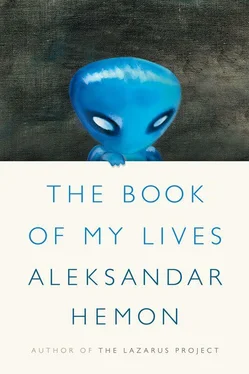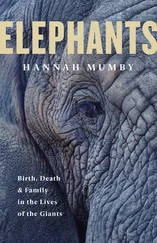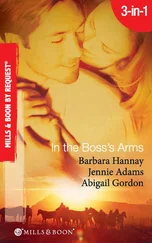Part of growing up is learning, unfortunately, to develop loyalties to abstractions: the state, the nation, the idea. You pledge allegiance; you love the leader. You have to be taught to recognize and care about differences, you have to be instructed who you really are; you have to learn how generations of dead people and their incomprehensible accomplishments made you the way you are; you have to define your loyalty to an abstraction-based herd that transcends your individuality. Hence the raja is hard to sustain as a social unit, your loyalty to it — to the “we” so concrete that I could (still) provide a list of names that constituted it — no longer acceptable as a serious commitment.
I cannot honestly claim that my insult was directly related to the fact that our wars and the golden days of our Park sovereignty ended soon thereafter. At some point all the conflicts with other raja s were resolved by playing soccer, which we were not all that good at. We still couldn’t beat Zeko and his team, because they had the power to determine when a foul was committed or a goal scored. We did not dare touch them and even when we scored, the goal was always denied.
As for Almir, he didn’t play soccer well enough and he got even more into Bijelo Dugme, a band I would forever hate. Soon he reached a point in his life when girls were accessible to him. He started leading a life different from our boyish lives, becoming someone other than ourselves well before we could. Now I don’t know where he is or what happened to him. We no longer belong to “us.”
3. US VERSUS THEM
In December 1993, my sister and parents arrived as refugees in Hamilton, Ontario. In the first couple of months, my parents attended English-language courses, while Kristina worked at Taco Bell, a purveyor of fast “ethnic” food, which she preferred to refer to as Taco Hell. Things were very complicated for them, what with the language my parents couldn’t speak, the generic shock of displacement, and a cold climate that was extremely unfriendly to randomly warm human interactions. For my parents, finding a job was a frightening operation of major proportions, but Hamilton is a steel-mill town teeming with job-hungry immigrants, where many of the natives are first-generation Canadians and therefore friendly, and supportive of their new compatriots. Soon enough my parents did find work — Father at a steel mill, Mother as a superintendent in a large apartment building, in which many of the tenants were foreign-born.
Yet within months, my parents started cataloguing the differences between us and them— we being Bosnians or ex-Yugoslavs, they being purely Canadian. That list of differences, theoretically endless, included items such as sour cream (our sour cream— mileram —was creamier and tastier than theirs); smiles (they smile, but don’t really mean it); babies (they do not bundle up their babies in severe cold); wet hair (they go out with their hair wet, foolishly exposing themselves to the possibility of lethal brain inflammation); clothes (their clothes fall apart after you wash them a few times), et cetera. My parents, of course, were not the only ones obsessing over the differences. Indeed, their social life at the beginning of their Canadian residence largely consisted of meeting people from the old country and exchanging and discussing the perceived dissimilarities. Once I listened to a family friend in what could fairly be called astonishment as he outlined a substratum of differences proceeding from his observation that we like to simmer our food for a long time ( sarma , cabbage rolls, being a perfect example), while they just dip it in extremely hot oil and cook it in a blink. Our simmering proclivities were reflective of our love of eating and, by extension and obviously, of our love of life. On the other hand, they didn’t really know how to live, which pointed at the ultimate, transcendental difference— we had soul, and they were soulless. The fact that — even if the food-preparation analysis made any sense— they did not love committing atrocities either and that we were at the center of a brutal, bloody war, which under no circumstances could be construed as love of life, didn’t at all trouble the good analyst.
Over time, my parents stopped compulsively examining the differences, perhaps because they simply ran out of examples. I’d like to think, however, it was because they were socially integrated, as the family expanded over the years with more immigration and subsequent marriages and procreation, so that we now included a significant number of native Canadians, in addition to all the naturalized ones. It has become harder to talk about us and them now that we have met and married some of them — the clarity and the significance of differences were always contingent upon the absence of contact and proportional to the mutual distance. You could theoritize Canadians only if you didn’t interact with them, for then the vehicles of comparison were the ideal, abstract Canadians, the exact counterprojection of us. They were the not-us, we were the not-them.
The primary reason for this spontaneous theoretical differentiation was rooted in my parents’ desire to feel at home, where you can be who you are because everyone else is at home, just like you. In a situation in which my parents felt displaced, and inferior to the Canadians, who were always already at home, constant comparison was a way to rhetorically equate ourselves with them. We could be equal because we could compare ourselves with them; we had a home too. Our ways were at least as good as theirs, if not even better — take our sour cream or the philosophical simmering of sarma . Not to mention that they could never get our jokes or that their jokes are not funny at all.
But my parents’ instinctive self-legitimization could only be collective, because that was what they carried over from the old country, where the only way to be socially legitimate had been to belong to an identifiable collective — a greater, if more abstract, raja . Neither did it help that an alternative — say, defining and identifying yourself as a professor — was no longer available to them, since their distinguished careers disintegrated in the process of displacement.
The funny thing is that the need for collective self-legitimization fits snugly into the neoliberal fantasy of multiculturalism, which is nothing if not a dream of a lot of others living together, everybody happy to tolerate and learn. Differences are thus essentially required for the sense of belonging: as long as we know who we are and who we are not, we are as good as they are. In the multicultural world there are a lot of them , which ought not to be a problem as long as they stay within their cultural confines, loyal to their roots. There is no hierarchy of cultures, except as measured by the level of tolerance, which, incidentally, keeps Western democracies high above everyone else. And where the tolerance level is high, diversity can be celebrated and mind-expanding ethnic food can be explored and consumed (Welcome to Taco Hell!), garnished with the exotic purity of otherness. A nice American lady once earnestly told me: “It is so neat to be from other cultures,” as though the “other cultures” were an Edenic archipelago in the Pacific, unspoiled by the troubles of advanced civilizations, home to many a soul-soothing spa. I had no heart to tell her that I was often painfully and sometimes happily complicated.
4. THAT’S ME
The situation of immigration leads to a kind of self-othering as well. Displacement results in a tenuous relationship with the past, with the self that used to exist and operate in a different place, where the qualities that constituted us were in no need of negotiation. Immigration is an ontological crisis because you are forced to negotiate the conditions of your selfhood under perpetually changing existential circumstances. The displaced person strives for narrative stability — here is my story! — by way of systematic nostalgia. My parents ceaselessly and favorably compared themselves with Canadians precisely because they felt inferior and ontologically shaky. It was a way for them to tell a true story of themselves, to themselves or anyone willing to listen.
Читать дальше












